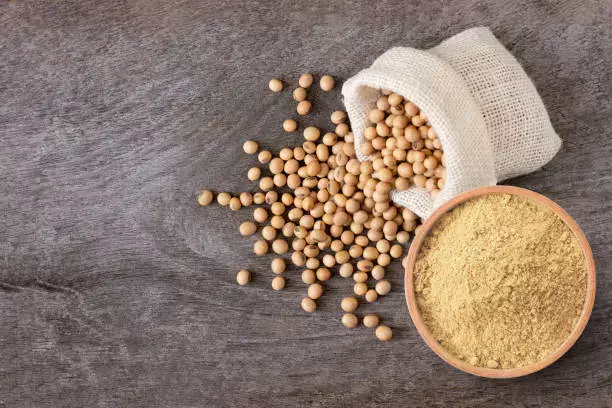- Home
- Medical news & Guidelines
- Anesthesiology
- Cardiology and CTVS
- Critical Care
- Dentistry
- Dermatology
- Diabetes and Endocrinology
- ENT
- Gastroenterology
- Medicine
- Nephrology
- Neurology
- Obstretics-Gynaecology
- Oncology
- Ophthalmology
- Orthopaedics
- Pediatrics-Neonatology
- Psychiatry
- Pulmonology
- Radiology
- Surgery
- Urology
- Laboratory Medicine
- Diet
- Nursing
- Paramedical
- Physiotherapy
- Health news
- Fact Check
- Bone Health Fact Check
- Brain Health Fact Check
- Cancer Related Fact Check
- Child Care Fact Check
- Dental and oral health fact check
- Diabetes and metabolic health fact check
- Diet and Nutrition Fact Check
- Eye and ENT Care Fact Check
- Fitness fact check
- Gut health fact check
- Heart health fact check
- Kidney health fact check
- Medical education fact check
- Men's health fact check
- Respiratory fact check
- Skin and hair care fact check
- Vaccine and Immunization fact check
- Women's health fact check
- AYUSH
- State News
- Andaman and Nicobar Islands
- Andhra Pradesh
- Arunachal Pradesh
- Assam
- Bihar
- Chandigarh
- Chattisgarh
- Dadra and Nagar Haveli
- Daman and Diu
- Delhi
- Goa
- Gujarat
- Haryana
- Himachal Pradesh
- Jammu & Kashmir
- Jharkhand
- Karnataka
- Kerala
- Ladakh
- Lakshadweep
- Madhya Pradesh
- Maharashtra
- Manipur
- Meghalaya
- Mizoram
- Nagaland
- Odisha
- Puducherry
- Punjab
- Rajasthan
- Sikkim
- Tamil Nadu
- Telangana
- Tripura
- Uttar Pradesh
- Uttrakhand
- West Bengal
- Medical Education
- Industry
Soy Protein useful alternative to animal protein for athletes for maintaining exercise performance

Protein supplements are important to maintain optimum health and physical performance, particularly in athletes and active individuals to repair and rebuild their skeletal muscles and connective tissues. Soy protein (SP) is a sustainable and plant-sourced protein that is rich in nutrients (e.g., isoflavones) that could be absent in animal-sourced proteins. SP has gained popularity in recent years as an alternative to animal proteins.
Reza Zare et al conducted a systematic review to evaluate the evidence from randomised controlled clinical trials of the effects of SP supplementation in active individuals and athletes in terms of muscle adaptations, metabolic and antioxidant status, hormonal response and exercise performance. It also explored the differences in SP supplementation effects in comparison to whey protein. It has been published in ‘Sports Medicine’ journal.
A systematic search was conducted in PubMed, Embase and Web of Science, as well as a manual search in Google Scholar and EBSCO. Randomised controlled trials that evaluated the applications of SPs supplementation on sports and athletic-related outcomes that are linked with exercise performance, adaptations and biomarkers in athletes and physically active adolescents and young adults (14 to 39 years old) were included, otherwise, studies were excluded. The risk of bias was assessed according to Cochrane’s revised risk of bias tool.
Key findings of the study:
• A total of 19 eligible original research articles were included that investigated the effect of SP supplementation on muscle adaptations (n=9), metabolic and antioxidant status (n=6), hormonal response (n=6) and exercise performance (n=6). Some studies investigated more than one effect.
• SP was found to provide identical increases in lean mass compared to whey in some studies.
• SP consumption promoted the reduction of exercise-induced metabolic/blood circulating biomarkers such as triglycerides, uric acid and lactate.
• Better antioxidant capacity against oxidative stress has been seen with respect to whey protein in long-term studies.
• Some studies reported testosterone and cortisol fluctuations related to SP; however, more research is required.
• All studies on SP and endurance performance suggested the potential beneficial effects of SP supplementation (10–53.3 g) on exercise performance by improving high-intensity and high-speed running performance, enhancing maximal cardiac output, delaying fatigue and improving isometric muscle strength, improving endurance in recreational cyclists, increasing running velocity and decreasing accumulated lactate levels; however, studies determining the efficacy of soy protein on VO2max provided conflicted results.
The authors concluded that - “It is possible to recommend SP to athletes and active individuals in place of conventional protein supplements by assessing their dosage and effectiveness in relation to different types of training. SP may enhance lean mass compared with other protein sources, enhance the antioxidant status, and reduce oxidative stress. SP supplementation had an inconsistent effect on testosterone and cortisol levels. SP supplementation may be beneficial, especially after muscle damage, high-intensity/high-speed or repeated bouts of strenuous exercise.”
Further reading:
Effect of Soy Protein Supplementation on Muscle Adaptations, Metabolic and Antioxidant Status, Hormonal Response, and Exercise Performance of Active Individuals and Athletes: A Systematic Review of Randomised Controlled Trials
Reza Zare, Asli Devrim Lanpir et al
Sports Medicine (2023) 53:2417–2446
https://doi.org/10.1007/s40279-023-01899-w
MBBS, Dip. Ortho, DNB ortho, MNAMS
Dr Supreeth D R (MBBS, Dip. Ortho, DNB ortho, MNAMS) is a practicing orthopedician with interest in medical research and publishing articles. He completed MBBS from mysore medical college, dip ortho from Trivandrum medical college and sec. DNB from Manipal Hospital, Bengaluru. He has expirence of 7years in the field of orthopedics. He has presented scientific papers & posters in various state, national and international conferences. His interest in writing articles lead the way to join medical dialogues. He can be contacted at editorial@medicaldialogues.in.
Dr Kamal Kant Kohli-MBBS, DTCD- a chest specialist with more than 30 years of practice and a flair for writing clinical articles, Dr Kamal Kant Kohli joined Medical Dialogues as a Chief Editor of Medical News. Besides writing articles, as an editor, he proofreads and verifies all the medical content published on Medical Dialogues including those coming from journals, studies,medical conferences,guidelines etc. Email: drkohli@medicaldialogues.in. Contact no. 011-43720751


